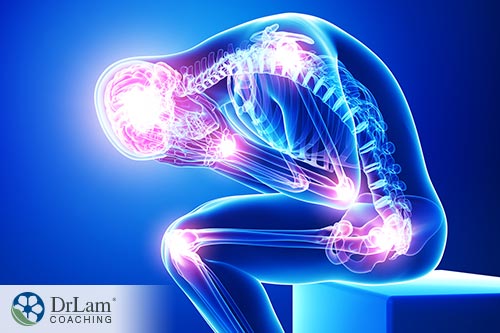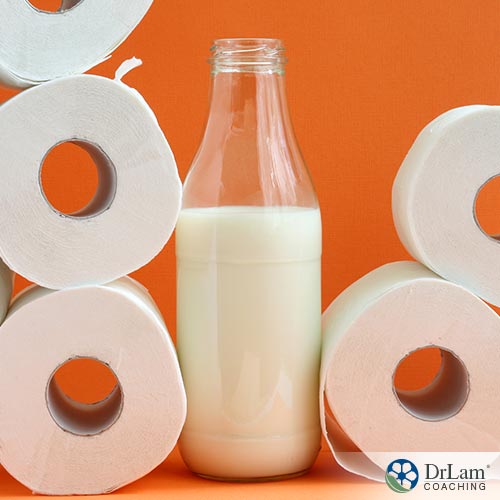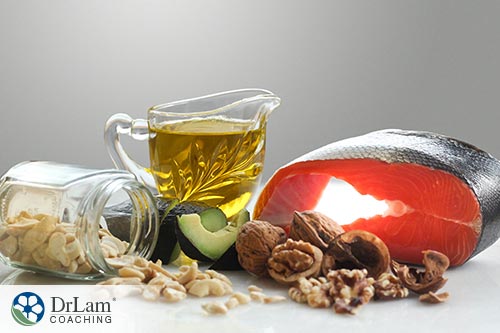 Nightshades are the edible part of the family of plants called Solanaceae. They are fruits and vegetables that you probably eat often, such as tomatoes, potatoes, eggplants, peppers, and chili peppers. Some herbs and spices also come from the nightshade family, such as paprika, chili powder, and cayenne pepper. And, not surprisingly, condiments made from these foods, such as ketchup, salsa, tomato sauce, and hot sauce are also considered nightshade foods.
Nightshades are the edible part of the family of plants called Solanaceae. They are fruits and vegetables that you probably eat often, such as tomatoes, potatoes, eggplants, peppers, and chili peppers. Some herbs and spices also come from the nightshade family, such as paprika, chili powder, and cayenne pepper. And, not surprisingly, condiments made from these foods, such as ketchup, salsa, tomato sauce, and hot sauce are also considered nightshade foods.
For most people, nightshade fruits and vegetables are healthy, nutritious, and unproblematic. For example, tomatoes are a good source of lycopene, a powerful antioxidant, as well as vitamins A and C. Potato skin contains vitamin B6, manganese, and potassium. Peppers are rich in vitamin C. In fact, they are one of the richest sources of it. And chili peppers contain capsaicin, which may help with weight loss.
But, for some people, nightshades can cause or aggravate inflammation in the body, despite their health benefits. That’s why in this article we’ll focus on their possible risks, so that you can make an informed decision about whether you might need to avoid them.
The debate surrounding nightshade foods concerns a substance they contain called glycoalkaloid. It’s a bitter, nitrogen-rich substance that is more concentrated in the stem and leaves of nightshade plants, although it’s also found in the fruits and vegetables.
This substance is the plant’s defense against pests like insects, bacteria, viruses, and animals. It’s a kind of natural repellant, helping to protect the plant from being eaten or invaded.
How glycoalkaloids work is that they attach to the cholesterol found in cell membranes. Usually, that cholesterol is there to protect against invasions into the cell, but because glycoalkaloids attach to it, they can pass through. This then can cause the rupture of the cell membrane, damaging the cells, even splitting them.
Now, it’s important to note that there isn’t yet enough evidence to support the claim that these substances can have an effect on people who eat nightshade vegetables. But it’s best to be cautious anyway, especially if you have Adrenal Fatigue Syndrome (AFS) or dysregulation of your NeuroEndoMetabolic (NEM) Stress Response, because these conditions weaken your entire system and make you more sensitive to certain substances and foods than you normally would be.
Your NEM is your body’s global response to stress. It’s composed of six circuits: The Hormone, the Bioenergetics, the Cardionomic, the Neuroaffect, the Inflammation, and the Detoxification circuits. Although your entire NEM is involved whenever there's stress in your body, some circuits are more involved than others, depending on the nature of the stressor.
When inflammatory substances enter your system, the first line of defense is the adrenal glands, which are part of the Hormone circuit. They produce cortisol, which in this case, tries to suppress the immune response to glycoalkaloids and neutralize the inflammation they cause.
Then, the Inflammation circuit kicks into gear, producing the immune and inflammatory response to nightshades. In order for the Inflammation circuit to work properly, your Detoxification circuit also needs to be on board, as it is responsible for clearing out the substances that the immune system has attacked, as well as any dead or damaged cells that resulted from the initial insult.
But if you’re eating a lot of nightshade fruits and vegetables, you may be loading up on more glycoalkaloids than your body has time to process. This could congest your Detoxification circuit, as it won’t have time to clear out all of that build-up. This then increases toxicity and inflammation as well, which leads to more stress on the body.
 AFS, as well as overall NEM dysregulation, is usually caused by chronic stress. And this stress can be physical or psychological. Inflammation, especially chronic inflammation, is one of the biggest chronic stressors on the body.
AFS, as well as overall NEM dysregulation, is usually caused by chronic stress. And this stress can be physical or psychological. Inflammation, especially chronic inflammation, is one of the biggest chronic stressors on the body.
What happens is that chronic stress makes your adrenals overwork in order to produce cortisol. And in the beginning stages of AFS, your cortisol levels rise above the normal range, which brings about its own set of problems. At some point, however, your adrenals will become exhausted, and their cortisol output drops completely. This marks the more advanced stages of AFS.
Symptoms of AFS include fatigue, insomnia, weight gain, brain fog, anxiety, mild depression, hair loss, dry skin, loss of libido, PMS, infertility, hypoglycemia, salt and sugar craving, lowered immunity, food and drug sensitivities, heart palpitations, and digestive issues, to name a few.
With inflammatory foods, you may not even be aware that they are causing your symptoms. Not all symptoms are gut-related. For example, some purported symptoms of nightshade-induced inflammation include:
If you don’t connect these dots, you probably end up eating these fruits and vegetables frequently. Some of them even daily. Many people eat tomatoes daily, in some form or other, such as in salads or in tomato sauce. Many people also add chili pepper to their cooking on a daily basis.
But if you’re sensitive to these foods, and they do indeed cause inflammation, you can imagine the vicious cycle that this causes. You eat the nightshades, your immune system sees the glycoalkaloids in them as harmful, launches an attack, and creates inflammation, and by the time it has done its job, you’ve eaten another nightshade and the cycle starts all over again.
 Chronic inflammation in the gut will eventually lead to a leaky gut, which is one of the biggest culprits when it comes to an increase in food and drug sensitivities. It causes the tight junctions in your gut lining to start to loosen, creating gaps. These gaps then allow substances into your bloodstream that shouldn’t be there, such as food particles, toxins, and pathogens. Then, once again, your immune system has to get involved and creates more inflammation.
Chronic inflammation in the gut will eventually lead to a leaky gut, which is one of the biggest culprits when it comes to an increase in food and drug sensitivities. It causes the tight junctions in your gut lining to start to loosen, creating gaps. These gaps then allow substances into your bloodstream that shouldn’t be there, such as food particles, toxins, and pathogens. Then, once again, your immune system has to get involved and creates more inflammation.
Leaky gut can then lead to issues such as gluten sensitivity, lactose intolerance, and even a negative reaction to medications that you have to take, even when you didn't have these issues before.
Another big problem with chronic inflammation is that it can spread. Starting in the gut, it can then go to other areas of the gastrointestinal (GI) tract. That’s why some people say that nightshades can cause Inflammatory Bowel Disease (IBD). If it spreads to the joints, it can cause pain and inflammation there. That’s why some people say that nightshades can cause or worsen arthritis. If it spreads to your brain and nervous system, it can cause psychiatric or neurological problems there. Some claim nightshades can even aggravate multiple sclerosis for this reason.
Again, although there’s not much evidence yet to support these claims, after decades of helping patients with adrenal fatigue and NEM dysregulation, we wouldn’t take such widespread claims for granted. In fact, AFS itself is yet to be accepted by the mainstream medical community.
That’s why we believe that it’s better to be careful with nightshades. Unfortunately, there are no lab tests that can tell you whether you're sensitive to them or not, so you will need to do a little test on yourself.
Probably one of the best things you can do is experiment with a nightshade elimination diet for a while and observe the results. However, you should be especially careful if you are in the more advanced stages of AFS because your system is extra sensitive and vulnerable then. Generally speaking, the adrenal fatigue diet doesn’t explicitly advocate for the elimination of nightshade fruits and vegetables, although they are not as prominent as they are in a regular diet.
To do an elimination diet, you first need to eliminate them completely from your diet for a while, such as for 30 days. Then add them back in one by one, waiting a week or so between each addition. Then record in a food journal how your body reacts. Include any symptoms that may seem unrelated.
If you felt better without them, it may be a good idea to keep them out completely. If you reacted to one in particular, you may want to avoid that one only. Then, once you have fully recovered from AFS, you can try to add them back in and see if there’s any difference. It may have just been your general weak state that made you more sensitive to them. Or it may turn out that you’d be better off without them in your diet in general.
Although at first, it can seem daunting to try to create your favorite nightshade recipes without nightshades, there are solutions. Thankfully, some fruits and vegetables that many people think are nightshades, such as onions and carrots are in fact not, and they can really help with these substitutions. For example:
Even if you decide to be nightshade-free long-term, you may not miss them as much as you thought. You may also want to consider taking up a full anti-inflammatory diet, which eliminates many other common inflammatory foods, such as dairy, gluten, and sugar. Then, you can add in anti-inflammatory foods, such as oily fish, nuts, seeds, beans, legumes, berries, and other colorful fruits and vegetables.
The adrenal fatigue diet is anti-inflammatory by nature. But you can also add to it some of the anti-inflammatory foods above, as well as foods that can help rebalance your microbiome and seal any leaks in your gut. These include bone broth and fermented foods, such as sauerkraut, kimchi, kefir, and yogurt.
The most common nightshades that you may want to reduce or eliminate from your diet include:
There are a few others to be aware of as well. They are:
Foods that some mistake for nightshades but are actually NOT NIGHTSHADES include:
 Nightshades are generally healthy and nutritious. Some have antioxidants and nutrients that are great for your body. If you have no reason to suspect you’re sensitive to them, research actually shows they are good for you and can reduce inflammation.
Nightshades are generally healthy and nutritious. Some have antioxidants and nutrients that are great for your body. If you have no reason to suspect you’re sensitive to them, research actually shows they are good for you and can reduce inflammation.
But some people do feel like they may be sensitive to them. More specifically, to their glycoalkaloid content, which may be causing inflammation. For those with IBD, other GI tract issues, arthritis, autoimmune conditions, or neurological conditions, it may be a good idea to eliminate them. Same for those with advanced adrenal fatigue and NEM dysregulation. But in these cases, you may only need to eliminate them temporarily until you have recovered, then see if you want to try to add them back in one at a time.
But it’s important that you do not make any big changes to your diet and lifestyle without first consulting a health professional, especially if you have adrenal fatigue.
If you have questions about nightshades, how they might affect AFS, inflammation, or need help determining the healthiest diet for your specific condition, you can contact the Dr. Lam Coaching team. We can offer you a free** no-obligation phone consultation at +1 (626) 571-1234 where we will privately discuss your symptoms and what your options are. You can also send us a question through our Ask The Doctor system by clicking here.
Although nightshades such as tomatoes, potatoes, peppers, and eggplants are nutritious and healthy for many people, they may cause inflammation in others. Especially for those with adrenal fatigue and other conditions that weaken the system. Find out how to determine if you’re sensitive to them and what to do about it.
